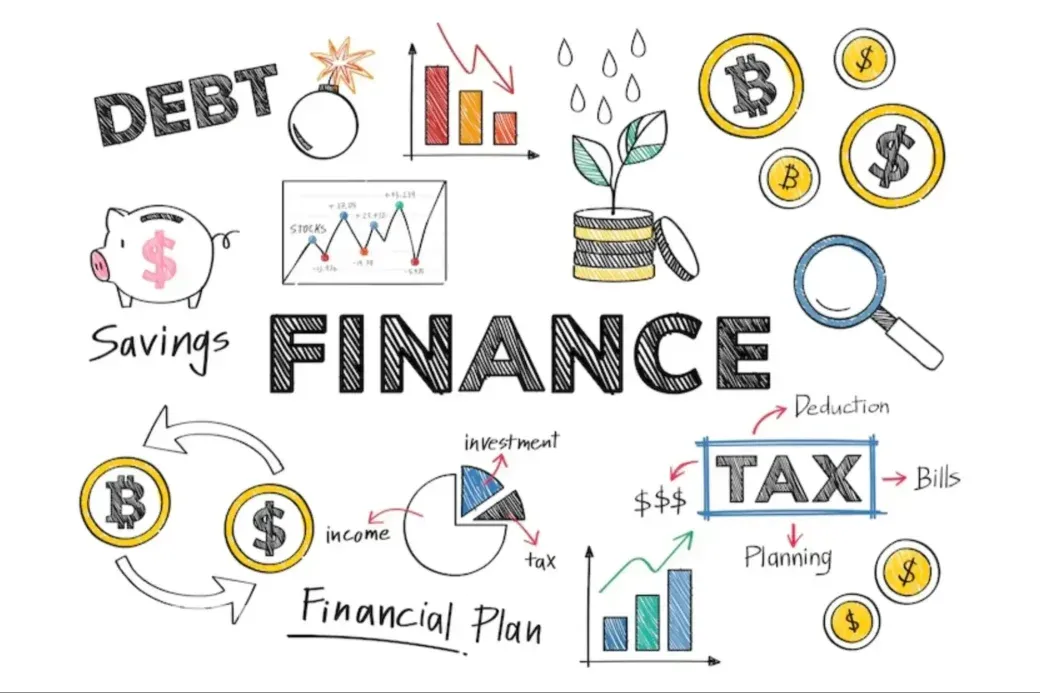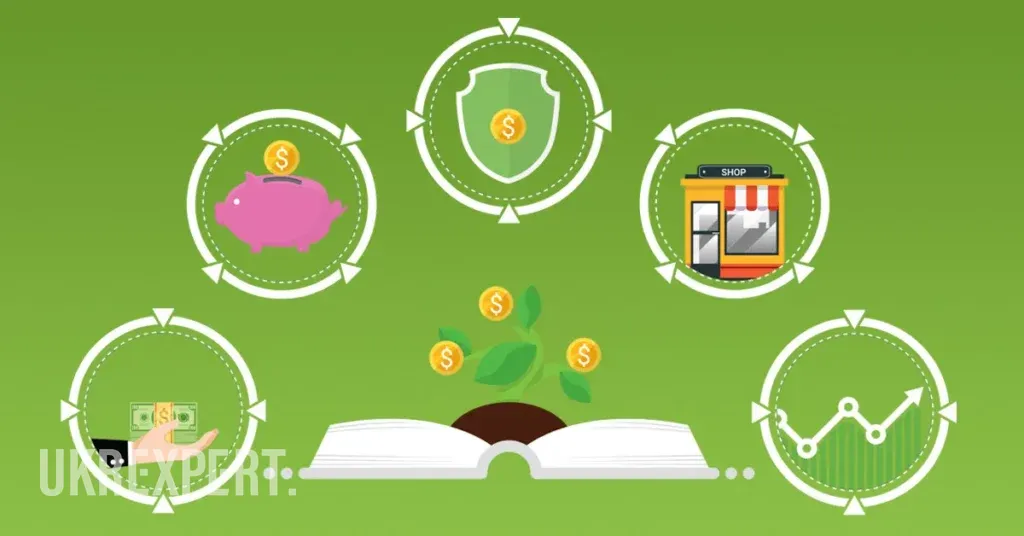
What is financial literacy and what are the key aspects?

Financial literacy is a set of knowledge, skills, and practices that allow a person to effectively manage their money. It makes it possible to spend money wisely, accumulate savings, plan for the future, and protect oneself from financial risks.
Financial literacy is important for people of all ages and income levels. By investing time and effort in learning the basics of financial literacy, you can improve your life and live debt-free, build savings, and achieve your financial goals.
So, financial literacy helps:
- To achieve their financial goals – to buy housing, education, travel, etc.
- Living debt-free means avoiding credit messes and saving on interest.
- Ensuring a decent life means having savings for unforeseen expenses and planning for retirement.
- Make informed financial decisions – do not fall for fraud, invest your money profitably.
What is financial literacy – video
In this YouTube video, you’ll learn what financial literacy is, how it affects your life, and discover key strategies for building true wealth.
Also read our article – What is financial monitoring?
Key aspects of financial literacy
Financial literacy is the foundation for achieving financial stability and well-being. It covers the important knowledge and skills needed to effectively manage personal finances, including planning, saving, investing, using credit, and understanding insurance. Mastering these aspects allows you to make informed financial decisions, reduce risks, and optimize your financial resources. Below are the key aspects of financial literacy, revealing their importance and role in achieving financial independence and success.
Understand basic economic concepts
Understanding basic economic concepts is critical for effective personal financial management and for making informed decisions in everyday life. It includes knowledge of the principles of supply and demand, inflation, exchange rates, and how economic cycles can affect the labor market and investments. It is the foundation on which all other aspects of financial literacy are built.
- Inflation – understanding how inflation depreciates money over time and how it affects your purchases and savings.
- Interest – understanding the principles of interest accrual on loans and deposits so you can make profitable decisions.
- Diversification is an understanding of the importance of spreading risks when investing so as not to lose all your funds in one area.
- Risk – understanding the different types of financial risks so you can assess and minimize them.
Planning and budgeting
Planning and budgeting are fundamental personal finance management skills. They allow you to control your own income and expenses, prioritize your savings, and develop strategies to achieve your financial goals. Budgeting is the first step to financial independence, as it helps you plan your spending according to your priorities and save for the future.
- Create an income and expense plan so you can control your finances.
- Track your expenses so you can see where your money is going.
- Prioritize your spending so you can save for important goals.
- Create a reserve fund for unforeseen expenses.
Saving and investing
Saving and investing play a key role in ensuring financial growth and long-term well-being. The ability to save not only allows you to build a financial cushion, but also creates opportunities for investing in assets that can generate income over time. Investing requires a deep understanding of market conditions, risks, and the potential of various investment instruments.
- Formation of a reserve fund for 3-6 months of expenses.
- Build long-term savings to achieve your goals (e.g., housing, education, retirement).
- Understand different investment instruments (stocks, bonds, deposits, real estate) and their risks.
- Choosing an investment strategy that meets your goals and risk profile.

Lending
Credit is a double-edged sword in the financial arsenal. On the one hand, it can help you achieve significant life goals, such as buying a home or a car, but on the other hand, poor debt management can lead to financial difficulties. Understanding the principles of lending, including interest rates, repayment terms, and potential pitfalls, is key to using credit to your advantage.
- Understand different types of loans (consumer, mortgage, credit cards) and their terms and conditions.
- Calculating the amount of the monthly loan payment so that you can assess your ability to pay.
- Avoidance of credit messes and excessive debt.
- Know your rights as a borrower.
Insurance
Insurance is an important risk management tool that allows you to protect yourself, your family and your property from unforeseen circumstances. Understanding the basics of insurance, including the types of insurance policies, their coverage, and insurance terms and conditions, helps ensure financial security and peace of mind.
- Understand the different types of insurance (life, health, property, auto) and their coverage.
- Choosing an insurance policy that meets your needs and budget.
- Understand insurance deductibles and other terms of the insurance contract.
Protection of consumer rights
Knowing and understanding consumer rights is an important aspect of financial literacy, enabling you to protect yourself from unfair practices and fraud. This includes knowledge of the legal and regulatory framework that protects consumer rights in the financial sector, including lending, investing and insurance, as well as knowledge of how and where to file a complaint or get help if they are violated.
- Know your rights as a consumer of financial services.
- Ability to recognize fraud and fraudulent schemes.
- Seeking assistance from regulators and law enforcement agencies in the event of a violation of your rights.

Read also our article: What is financial monitoring in a bank – types of financial monitoring
Conclusions on financial literacy
Financial literacy is not just the ability to count money, but a comprehensive understanding and implementation of the principles of effective personal finance management. Financial literacy enables people to spend money wisely, accumulate savings, plan for the future, and protect themselves from financial risks.
Financial literacy is the key to your financial well-being. By investing time and effort in learning the basics of financial literacy, you can significantly improve your life.
Questions and answers
Financial literacy enables people to spend money wisely, accumulate savings, plan for the future, and protect themselves from financial risks.
The key aspects of financial literacy include understanding basic economic concepts, budgeting, saving and investing, lending, insurance, consumer protection, the tax system, financial planning, the psychology of money, and digital literacy.
There are many resources to help you improve your financial literacy: online courses and webinars, books and expert articles, government programs, and expert advice.
The author of the Portal UKRexperts
Співпраця - текст
We are sure that knowledge should be accessible to everyone, and that is why UkrExperts strives to be your first choice when it comes to enriching intellectual potential.



